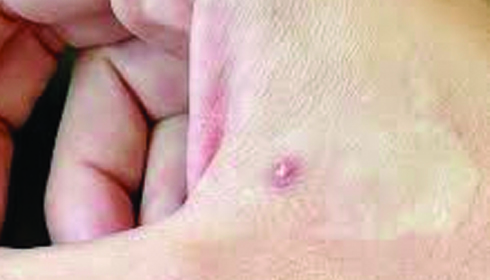
UNICEF Issues Emergency Tender for Mpox Vaccines to Aid Crisis-Hit Countries
In a key attempt to battle the continuing mpox outbreak, UNICEF has issued an emergency tender to acquire mpox vaccinations for the countries worst afflicted by the virus. This program, in conjunction with Africa's CDC, Gavi, the Vaccine Alliance, WHO, and other important partners, seeks to provide prompt access to vaccinations and strengthen the global response to this public health disaster.
UNICEF, the world's largest single vaccine buyer, imports more than two billion doses of vaccinations each year for regular child immunisation and epidemic response on behalf of almost 100 countries. The recent announcement to submit an emergency procurement for mpox vaccinations highlights the gravity of the problem. The Africa Centres for Disease Control and Prevention (Africa CDC) and the World Health Organisation (WHO) have declared the mpox epidemic a public health emergency, requiring immediate action to contain the virus.
The emergency offer aims to secure mpox vaccinations for the countries most affected. UNICEF, Africa CDC, Gavi, WHO, the Pan American Health Organisation, and other partners are working together to achieve this goal. This collaboration aims to improve vaccination access, ensure timely allocation, and facilitate donations from existing stocks in high-income countries. Such a coordinated effort is required to stop the spread of mpox and reduce its effect on vulnerable people.
Under this emergency offer, UNICEF will enter into conditional supply agreements with vaccine producers. This strategy enables UNICEF to quickly acquire and deliver vaccinations once countries and partners have secured funding, confirmed demand and preparedness, and met legal criteria. WHO is currently analyzing the material supplied by manufacturers and expects to finish its review for the Emergency Use Listing by mid-September.
The Democratic Republic of the Congo (DRC) is currently at the center of the mpox epidemic, with more than 18,000 suspected cases and 629 deaths documented this year alone. Alarmingly, four out of five deaths have occurred in youngsters, emphasising the vital need for a prompt and comprehensive response.
Leila Pakkala, Director of UNICEF's Supply Division, emphasised the necessity of tackling the present vaccination shortfall and getting vaccines to communities in need. "There is also a pressing need for a universal and transparent allocation mechanism to ensure equitable access to mpox vaccines," she told me.
The partnership of UNICEF, Africa CDC, Gavi, WHO, and other stakeholders is critical to ensuring a coordinated response to the mpox outbreak. According to Dr. Jean Kaseya, Director General of Africa CDC, "Africa CDC is committed to ensuring that vaccines are allocated swiftly and equitably across the continent in partnership with UNICEF, Gavi, WHO, and other key stakeholders."
Dr. Derrick Sim, interim Chief Vaccine Programmes and Markets Officer at Gavi, emphasized the importance of securing supply, financing, and ensuring countries' readiness to provide vaccines. "We need to conduct rapid, thorough, and coordinated actions to secure access to supply and financing, deliver doses, and ensure countries are ready to administer them," he stated.
Dr Maria Van Kerkhove, WHO's incident manager for the global mpox response, emphasised the importance of a timely, coordinated, and equitable response to the present mpox emergency. "All of us must act decisively now or risk allowing mpox to spread further and become an even greater global threat," cautioned the doctor.
The emergency tender intends to not only provide quick access to accessible mpox vaccinations, but also to increase manufacturing capacity. Depending on demand and finance, we can reach agreements for up to 12 million doses by 2025, significantly enhancing worldwide response capabilities.
In addition to vaccine procurement, UNICEF and its partners focus on infection prevention and control, risk communication, and community participation. UNICEF is also sending personal protective equipment, diagnostic tests, medical treatment kits, hygiene supplies, and tents to nations at the forefront of the crisis to help with medical countermeasures like treatment, case isolation, and surveillance.